Senate ‘Odd Couple’ Bernie Sanders and Rand Paul Poised to Lead Ed Committee
The possibility of the two firebrands emerging from midterm elections to lead the panel has some crying, ‘HELP!’
By Linda Jacobson | November 6, 2022Updated Nov. 17
Now that the Democrats will stay in control of the Senate next year, Vermont Sen. Bernie Sanders, a far-left independent, has officially announced his intention to chair the education committee. According to a statement from his office, he’ll likely focus more on higher education and health care issues than K-12.
Meanwhile, conservative Sen. Rand Paul of Kentucky — in line to be the top Republican on the committee — has announced that he will instead take the role of ranking member on the Homeland Security and Governmental Affairs Committee. That leaves Louisiana Sen. Dr. Bill Cassidy as the next Republican in line for the job. Cassidy, an advocate for students with dyslexia, is also considering a run for governor.
The progessive believes in free college for all and wants to triple funding for poor schools.
The conservative once campaigned to abolish the U.S. Department of Education.
One is the son of a former Libertarian Party candidate for president and sounds a consistent drumbeat on schools: The federal government should stay out.
The other, ranked most politically left by one scorecard, is a self-described democratic socialist known for pushing just one education cut — to charter schools.
But in the latest example of the nation’s topsy-turvy politics, Vermont Independent Bernie Sanders and Kentucky Republican Rand Paul will soon be first in line to run the Senate education committee.
“They’re a heck of an odd couple,” said Rick Hess, a senior fellow and director of education policy studies at the conservative American Enterprise Institute.
“Alpha and omega,” quipped Jack Jennings, a retired education policy expert and former Democratic staffer for the House.
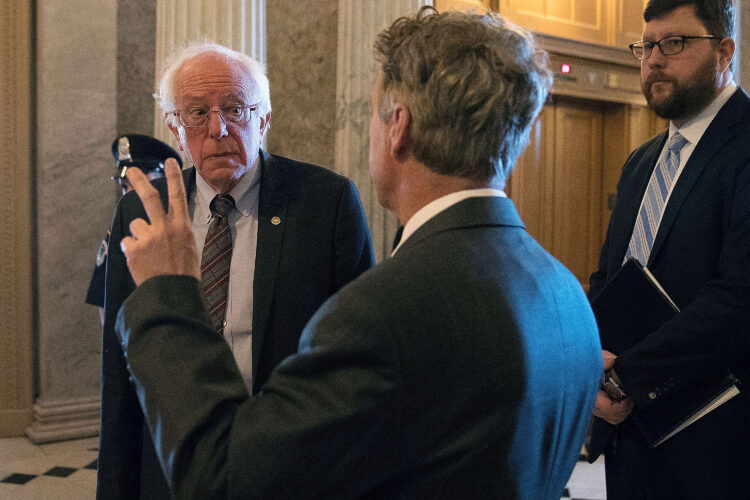
Depending on the outcome of this week’s election, the two firebrands are the top contenders to be chair and ranking member of the Senate HELP Committee, which also oversees health, labor and pension issues. While it may seem increasingly inaptly named in an era of gridlock and rabid partisanship, the committee wields considerable power, overseeing a $235 billion education budget and issues from special education to preventing sexual harassment and discrimination in schools.
With Republicans already proposing federal legislation to restrict lessons on gender identity and sexual orientation and the Biden administration engulfed in a legal fight to wipe out billions of dollars in student loan debt, there’s plenty of potential for the two to clash. Neither senator’s office responded to requests for comment.
The succession battle is triggered by the expected transition of longtime chair Patty Murray of Washington to a leadership position on the appropriations committee — that is, if she wins reelection against a suddenly formidable challenger— and the retirement of ranking member Sen. Richard Burr of North Carolina.
From COVID closures to parent protests at school board meetings, the committee has seen its share of hot-button topics over the past two years. While hearings have been clearly partisan, Murray and Burr have kept the tone fairly civil.
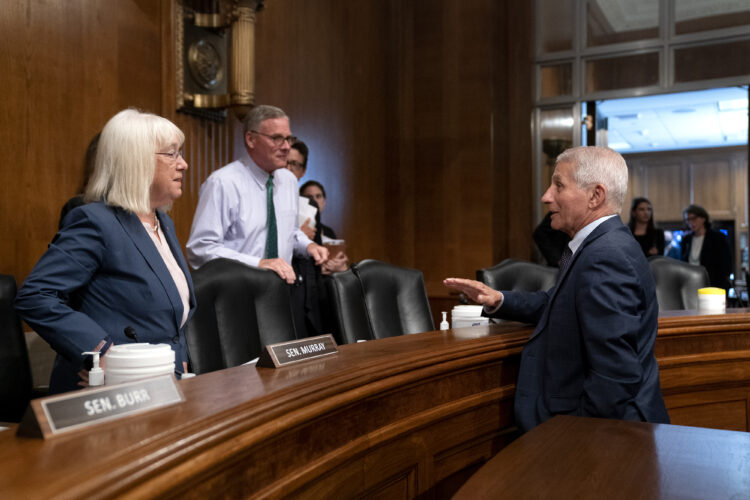
Bethany Little, principal at EducationCounsel, a consulting firm, sees it as the end of an era in which members wanted “to get things done.” That’s how it was, she said, when she worked for the committee under former Democratic chairs Edward Kennedy and Tom Harkin.
“There is a shift in the posture of the people taking charge and their interest in making a deal and being able to find middle ground,” she said.
The ascendency of Sanders/Paul — or Paul/Sanders — is by no means assured. Earlier this year, Senate Minority Leader Mitch McConnell said he expects Paul to run the committee if the GOP flips the Senate. But first, Paul has to defend his seat in Congress, which he’s expected to do in solidly Republican Kentucky. Sanders, for his part, would have to give up chairmanship of the budget committee.
Some say that’s a switch he’d be likely to make.
The senator “got his green money,” Hess said, referring to climate-related provisions in the Inflation Reduction Act. But President Joe Biden’s plans for free preschool and community college, part of the original version of that bill, fell by the wayside.
Sanders recently said he’d like to revive efforts to pass what he has described as “transformational” programs for families, such as extending the larger child tax credit that was part of the American Rescue Plan. But he never wanted to stop at two years of free community college. He wants all higher education to be free and for the federal government to cancel all student debt.
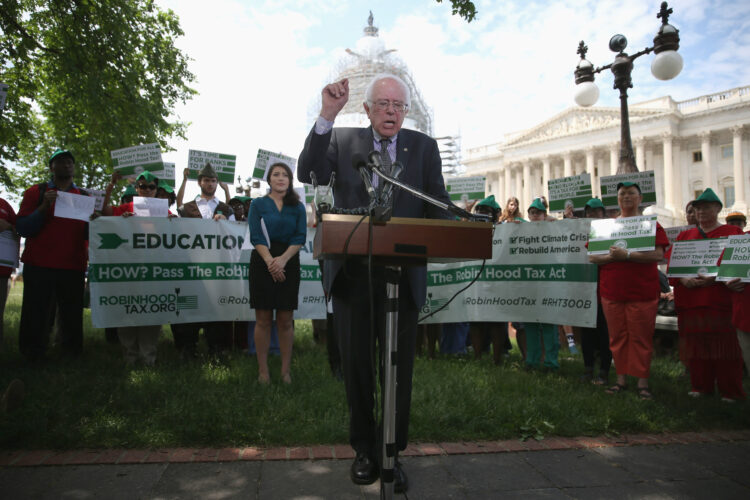
As an advocate for universal health care, the chairmanship would also allow him to lead the panel that oversees the government’s various health-related agencies.
Health care issues might also be a reason why Paul, an eye surgeon, would savor the chance to chair the committee. Paul is known for his regular confrontations with medical adviser Dr. Anthony Fauci over COVID policies and vaccines. Paul wants to investigate allegations that tie Fauci to the virus’s creation by funding research in China. While Fauci categorically denies the allegations, an Oct. 20 Paul fundraising email declares, “If you help me win, I promise to subpoena every last document of Dr. Fauci’s unprecedented coverup.”
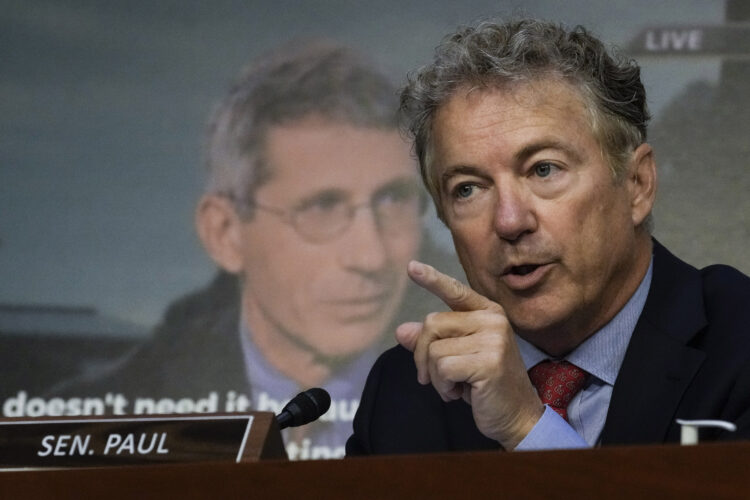
“He’s so off the rails on just about everything,” said Charles Barone, a former Democratic staffer in the Senate and now vice president of K-12 policy with Democrats for Education Reform, a think tank. “His level of combativeness and his general aversion to anything bipartisan is problematic.”
Paul was the among the handful of Republicans to vote against the Every Student Succeeds Act in 2015. Aside from wanting to put Education Secretary Miguel Cardona out of a job, he also proposes sending federal K-12 dollars directly to parents.
Jennings said moderate Republicans on the committee — Sens. Susan Collins of Maine, Lisa Murkowski of Alaska and Mitt Romney of Utah — could mitigate some of Paul’s rhetoric.
But as for the Vermont senator, he said, “I don’t think there’s any restraint on Sanders. He speaks his mind.”
As Election Day nears, predictions on whether Democrats will hold onto the Senate change almost by the hour. According to election forecaster FiveThirtyEight, they are now in a “dead heat” with Republicans, who have been gaining in the polls.
Regardless of who leads the committee, as long as one party holds a slim majority, there’s little chance members would advance bipartisan bills, said Michelle Dimino, deputy director of education for Third Way, a center-left think tank.
“It’s more likely to stay in the realm of hearings and investigations,” she said.
Hess said he could see Republicans questioning how districts are spending COVID relief money, and Jennings added that they would likely try to stop the Biden administration’s move to cancel student debt.
“There’s enough for them to muck around in,” Jennings said.
Possible common ground
Despite their differences, the two iconoclasts have one thing in common: They are both known for bucking their own parties — a trait that could make them occasional allies. One issue where the pair could find common ground is testing and accountability. Paul views the federal requirements to assess students annually as “Washington’s intrusion into the classroom,” and Sanders is an outspoken critic of standardized testing.
They might also find agreement on protecting student privacy. Paul has sought to roll back government surveillance programs, and Sanders is “wary about big tech collecting data” on students, said Lindsay Fryer, senior vice president of Penn Hill Group, an education lobbying firm.

Paul is also up for the top Republican seat on the homeland security committee and has said he doesn’t plan to make his choice until after the election. That committee oversees the D.C. Opportunity Scholarship Program, which would still give Paul a chance to put his stamp on expanding school choice.
Republicans want to see the program, which serves about 1,800 students, have “stable financial footing,” said Lindsey Burke, director of the Center for Education Policy at the conservative Heritage Foundation. Right now, she said, it exists “at the whim of Congress.”
American Federation of Teachers President Randi Weingarten is among those who probably hopes he’ll choose homeland security. She told The 74 that the prospect of him leading the education committee “absolutely” keeps her up at night as she travels the country to campaign for Democratic candidates.
Given how far apart the parties are on education, leaders might have no problem with Paul and Sanders promoting their out-of-the-mainstream ideas.
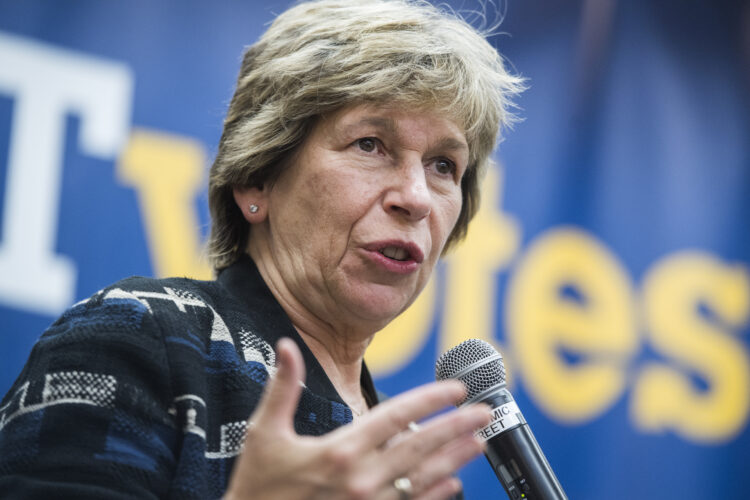
But the opposite could also be true.
Hess said Republicans could regret giving more attention to the idea of eliminating the education department. Likewise, he said, the “Democrats might be better off if Sanders doesn’t have such a visible, public platform to talk about giving money away.”
The 74’s senior reporter Jo Napolitano contributed to this report.
Get stories like these delivered straight to your inbox. Sign up for The 74 Newsletter

